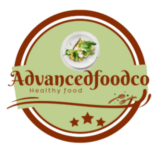Nutrition 2023
Nutrition refers to the process of obtaining the necessary food elements required for growth,
maintenance, and overall well-being. It encompasses the study of nutrients in food,
their digestion, absorption, metabolism, and the physiological effects they have on the body.
Here are some key points related to nutrition:

Nutrients:
Macronutrients: These are nutrients needed in relatively large amounts and include carbohydrates, proteins, and fats. They provide the energy necessary for bodily functions.
Micronutrients: These are essential in smaller quantities and include vitamins and minerals.
They play crucial roles in various physiological processes.
Healthy Eating:
A balanced diet involves consuming a variety of foods in appropriate proportions to meet nutritional needs.
The food pyramid or plate is often used as a visual guide to represent the recommended daily intake of different food groups.
Caloric Intake:
The number of calories consumed should align with the individual’s energy
expenditure to maintain a healthy weight.
Excessive caloric intake, often from unhealthy food choices, can contribute to obesity and related health issues.
Water Intake:
Water is essential for hydration and is vital for many physiological processes in the body.
It helps regulate body temperature, transport nutrients, and eliminate waste.
Dietary Guidelines:
Many countries provide dietary guidelines to promote healthy eating habits and prevent nutritional deficiencies or excesses.
Special Diets:
Some individuals may follow specific diets due to health conditions, personal preferences, or ethical reasons.
Examples include vegetarianism, veganism, and gluten-free diets.
Nutrition and Health:
Proper nutrition is fundamental to overall health. Nutrient deficiencies can lead to various health problems,
while a well-balanced diet can reduce the risk of chronic diseases.
Nutritional Labels:
Food packaging often includes nutritional labels that provide information on the content of macronutrients,
micronutrients, and calories in a product.
Nutrition Education:
Promoting nutrition education is crucial to help individuals make informed food choices and adopt healthy eating habits.
Global Nutrition Challenges:
Malnutrition, both undernutrition and overnutrition (obesity),
remains a global challenge with significant implications for public health.
Understanding nutrition is key to promoting overall health and preventing nutritional imbalances
that can lead to various health issues. It’s advisable for individuals to consult with healthcare professionals or nutritionists for personalized advice based on their specific needs and health goals.
Certainly! Continuing from the previous information:
Physical Activity:
Nutrition is closely linked to physical activity. A balanced diet, along with regular exercise,contributes to overall health and well-being.
Athletes and individuals with specific fitness goals often require
tailored nutrition plans to support their training and recovery.
Lifecycle Nutrition:
Nutritional needs vary throughout life stages, from infancy to old age. Infants, children, teenagers,
pregnant women, and the elderly all have specific dietary requirements.
Public Health Initiatives:
Governments and health organizations often implement public
health initiatives to address nutrition-related issues, such as promoting healthy eating habits,
reducing food insecurity, and tackling malnutrition on a broader scale.
Processed Foods and Nutrient Density:
The nutritional value of foods is a crucial consideration. Processed foods, while convenient,
may lack essential nutrients and contain additives. Choosing nutrient-dense whole foods is generally recommended.
Nutrigenomics:
This is an emerging field that explores the interaction between genetics and nutrition.
It examines how individual genetic makeup influences responses to different diets and nutrients.
Food Allergies and Intolerances:
Certain people experience allergies or intolerances to specific types of food.
Understanding and managing these conditions is essential
for maintaining good health and preventing adverse reactions.
Eating Disorders:
Conditions like anorexia nervosa, bulimia nervosa, and binge-eating disorder
involve unhealthy eating patterns that can have serious health consequences.
Treatment often involves a multidisciplinary approach, including nutritional counseling.
Global Nutrition Programs:
Organizations such as the World Health Organization (WHO) and UNICEF work
on global nutrition programs to address issues like malnutrition, particularly in developing countries.
Nutrition Research:
Ongoing research in nutrition helps to advance our understanding of the relationship between diet and health.
This includes studies on the impact of specific nutrients on disease prevention and overall well-being.
Technology and Nutrition:
Mobile apps and online platforms provide tools for tracking food intake,
monitoring nutritional content, and receiving personalized dietary recommendations.
Technology plays a role in promoting awareness and facilitating healthier choices.
In summary, nutrition is a multifaceted and dynamic field that plays a pivotal role in
maintaining health and preventing diseases. It involves making informed food choices,
considering individual needs, and staying abreast of the latest research findings.
Adopting a balanced and varied diet, coupled with a healthy lifestyle, contributes to overall well-being.
Nutritional Challenges in Modern Lifestyles:
Busy schedules, fast-paced lifestyles, and the availability of convenience
foods pose challenges to maintaining a balanced diet.
Awareness of nutrition and making mindful choices become crucial in such environments.
Nutritional Counseling and Education:
Nutritionists and dietitians play a vital role in providing personalized guidance.
They offer advice on dietary choices, meal planning, and lifestyle changes to meet individual health goals.
Community Nutrition Programs:
Community-based initiatives focus on improving nutrition at the local level.
These programs often include education, access to affordable, healthy foods,
and strategies to address specific nutritional needs within communities.
Hygiene and Food Safety:
Ensuring the safety of food from contamination and practicing proper
hygiene during food preparation are integral parts of nutrition.
Foodborne illnesses can be prevented by following food safety guidelines.
Environmental Impact of Food Choices:
The production and consumption of food have environmental implications.
Sustainable and environmentally friendly food choices are gaining importance,
with considerations for issues such as deforestation, greenhouse gas emissions, and water usage.
Functional Foods:
Functional foods are those that offer health benefits beyond basic nutrition.
They may contain bioactive compounds with potential positive effects on health,
such as probiotics, omega-3 fatty acids, and antioxidants.
Dietary Supplements:
While a well-balanced diet is ideal, some individuals may need supplements
to address specific nutritional deficiencies. However, it’s crucial to use
supplements under the guidance of healthcare professionals to avoid potential risks.
Cultural and Regional Influences on Diet:
Eating habits are often influenced by cultural and regional factors.
Diets can vary widely, and understanding these cultural nuances is essential
for promoting healthy eating patterns within diverse populations.
Government Policies and Nutrition:
Governments worldwide implement policies related to nutrition,
such as food labeling regulations, school meal programs, and initiatives
to combat food deserts (areas with limited access to fresh, healthy food).
Continual Learning in Nutrition:
Share it:
- Click to share on Facebook (Opens in new window) Facebook
- Click to share on X (Opens in new window) X
- Click to email a link to a friend (Opens in new window) Email
- Click to share on LinkedIn (Opens in new window) LinkedIn
- Click to share on Reddit (Opens in new window) Reddit
- Click to share on X (Opens in new window) X
- Click to share on Tumblr (Opens in new window) Tumblr
- Click to share on Pinterest (Opens in new window) Pinterest
- Click to share on Telegram (Opens in new window) Telegram
- Click to share on Threads (Opens in new window) Threads
- Click to share on WhatsApp (Opens in new window) WhatsApp
- Click to share on Mastodon (Opens in new window) Mastodon
- Click to share on Nextdoor (Opens in new window) Nextdoor
- Click to share on Bluesky (Opens in new window) Bluesky
- Click to print (Opens in new window) Print
Related
Discover more from Advance food co
Subscribe to get the latest posts sent to your email.

